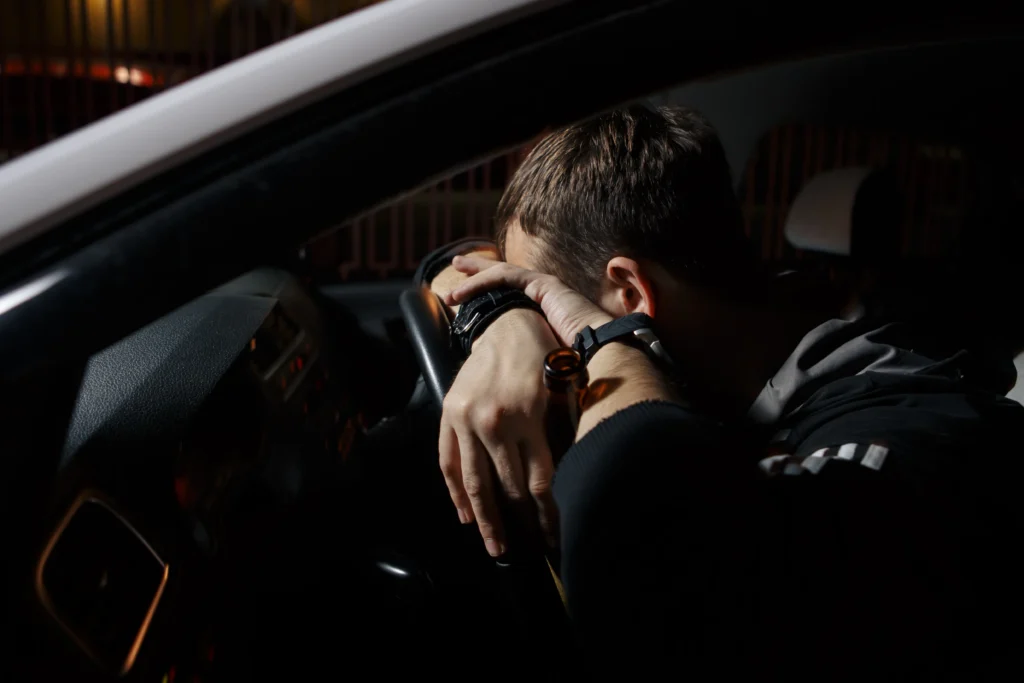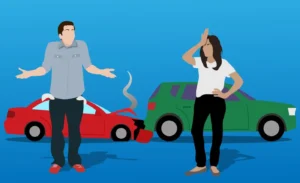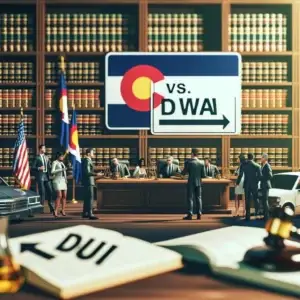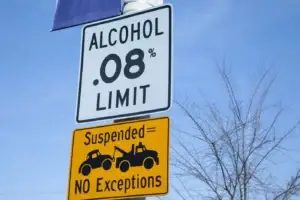Most people believe a DUI arrest in Colorado only happens when a driver is caught operating a moving vehicle. In reality, you can be charged even if your car is parked and never leaves its spot. That is because of a key legal concept called actual physical control.
Colorado DUI law says you may be convicted if you are in actual physical control of a motor vehicle while under the influence of alcohol or drugs. For many people, this rule comes as a shock—especially those who thought they were making a responsible choice by sleeping in their car instead of driving.
At Lawrence Law Firm, we have seen how confusing and far-reaching this law can be.
What Does “Actual Physical Control” Mean?
Colorado’s DUI statute, C.R.S. § 42-4-1301, defines a driver as anyone who “drives or is in actual physical control of a vehicle.”
The phrase “actual physical control” expands the reach of DUI laws. It covers situations where someone is in a position to operate a vehicle, even if the vehicle is not moving. The idea is that the person has the present ability to make the car a danger on the road.
Examples of potential actual physical control include:
Sitting in the driver’s seat with the keys in the ignition.
Starting the car to warm it up while impaired.
Parking on the roadside and falling asleep behind the wheel with the engine running.
Why Colorado Uses Actual Physical Control
The rule exists to protect the public. If impaired individuals could only be charged once the car was moving, it would leave a dangerous gap in the law. Lawmakers and courts view actual physical control as a way to prevent drunk driving before it starts.
The Colorado Department of Transportation warns that even a brief lapse in judgment while intoxicated can cause severe accidents. By criminalizing actual physical control, Colorado tries to reduce the risk that someone impaired will change their mind—or simply make a mistake—and put the vehicle in motion.
How Courts Decide Whether Actual Physical Control Exists
There is no strict checklist that automatically defines actual physical control. Instead, Colorado courts apply a totality of the circumstances test. That means judges and juries look at many factors together before deciding.
Some of the most important considerations include:
Location of the vehicle
Was the car parked in a private driveway, in a bar parking lot, or on the shoulder of a busy highway? Being on a public roadway makes a finding of APC more likely.
Position of the person in the car
Sitting in the driver’s seat suggests readiness to drive. Being in the passenger seat or back seat may weigh against APC, though it does not guarantee safety.
Access to the keys
Keys in the ignition, or even within easy reach, strongly suggest control. If the keys are locked in the trunk or stored outside the vehicle, the argument for APC is weaker.
Engine status
A running engine—whether for heat, AC, or to charge a phone—makes a strong case for APC. Courts have found APC even when the engine is off, as long as other factors point toward control.
Operability of the vehicle
A car that cannot reasonably be driven may not support APC. But Colorado courts have ruled that temporary issues, such as a dead battery or empty fuel tank, do not automatically eliminate the possibility of control.
Other circumstances
Seatbelt use, vehicle lights, personal statements, and even body position can all be relevant. Courts look at the overall situation rather than a single fact.
Sleeping in the Car: A Common Scenario
A common question is: Can I get a DUI in Colorado for sleeping in my car? The answer is yes.
If you are in the driver’s seat and the keys are accessible, courts often find that you were in actual physical control. Even if your intent was to sleep and not drive, the law treats your ability to operate the vehicle as the risk.
Ways to reduce exposure—though not guaranteed—include:
Resting in the back seat instead of the driver’s seat.
Placing the keys far from reach, such as in the trunk.
Parking legally and safely off public roadways.
Still, because APC depends on many factors, even these precautions may not fully protect you from arrest.
The Role of Vehicle Operability
Colorado courts have specifically addressed whether vehicle operability matters in APC cases. In People v. VanMatre, the court considered whether a vehicle that could not be started still supported an APC charge. The court found that temporary inoperability does not automatically protect someone from liability, since a car may be easily repaired or refueled.
For reference, you can review Colorado case law on People v. Swain and People v. VanMatre to see how appellate courts interpret APC in practice.
This shows how complex the analysis can be: even a non-moving, temporarily inoperable car may not shield someone from APC liability.
Penalties for DUI Based on Actual Physical Control
The penalties for DUI or DWAI in Colorado do not change just because the charge is based on actual physical control rather than active driving. Convictions can include:
Jail or prison sentences (ranging from a few days to years for repeat offenders)
Fines and surcharges
Driver’s license suspension or revocation through the Colorado DMV
Community service requirements
Alcohol education and treatment programs
Ignition interlock device installation
Penalties increase with prior DUI/DWAI convictions or higher blood alcohol concentration (BAC) results.
For a detailed overview of statutory sentencing ranges, see the Colorado General Assembly’s summary of drunk driving laws.
Defenses to Actual Physical Control Allegations
Because Colorado DUI actual physical control charges are fact-specific, the defense often hinges on challenging the circumstances. Potential strategies include:
Vehicle inoperability
Showing that the car could not reasonably be driven because of mechanical failure.
Position and intent
Arguing that the accused was not in the driver’s seat and had no intention to drive.
Key accessibility
Demonstrating that the keys were not in the ignition and not within reach.
Engine and preparation
Establishing that the engine was off, the lights were off, and there was no attempt to operate the vehicle.
Alternative explanations
Presenting evidence that the vehicle was being used as a safe shelter rather than for transportation.
Because the law is broad and fact-driven, outcomes often depend on careful analysis of the entire situation.
Practical Takeaways
Do not assume that staying in your car keeps you safe from DUI charges. Even parked vehicles can lead to APC arrests.
Avoid the driver’s seat if you are impaired. Sitting behind the wheel creates a strong presumption of control.
Keep the keys out of reach. Courts weigh key accessibility heavily in APC determinations.
Remember the law focuses on ability, not intent. Even if you had no plan to drive, the possibility can be enough for conviction.
The safest option is to stay out of your vehicle until you are sober. Choosing alternatives like rideshare services (Uber or Lyft) eliminates the risk of an APC-based DUI arrest.
Speak with an Attorney Knowledgeable about Actual Physical Control
The concept of actual physical control makes Colorado DUI law broader than many people realize. By criminalizing situations where someone has the present ability to operate a car while impaired, the law aims to reduce accidents before they happen.
At Lawrence Law Firm, we help clients charged with Colorado DUI actual physical control understand their options, build strong defenses, and protect their rights.
If you face an APC-related DUI allegation, review the Colorado DUI statute and consult with an experienced defense attorney promptly. Early action can make the difference in protecting your license, freedom, and future.







